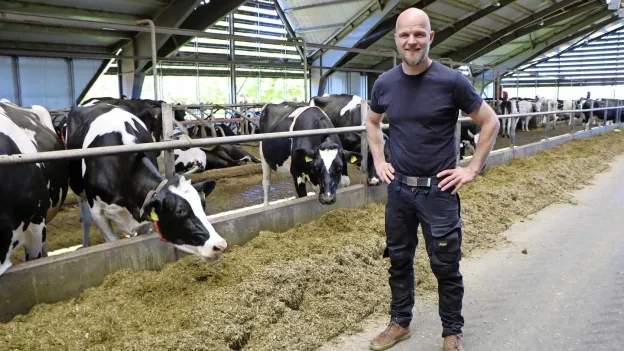
Denmark's Green Tripartite Agreement Sets Landmark in Agricultural Sustainability

denmark - Denmark's historic Green Tripartite Agreement aims to reduce greenhouse gas emissions and enhance biodiversity through sustainable agriculture practices, inspiring lessons for the Netherlands.
Denmark's Green Tripartite Agreement: A Milestone in Agricultural Sustainability
Denmark recently achieved a historic milestone with the Green Tripartite Agreement, focusing on reducing greenhouse gas emissions and improving biodiversity through sustainable agricultural practices. The agreement mandates that farmers pay taxes on emissions starting from 2030, aiming to tackle environmental challenges effectively.
Implementation Challenges and Strategies
In the Danish countryside, dairy farmer Claus Fenger is actively implementing the accord in his region. Collaborating with other farmers, nature organizations, and local representatives, they work towards sustainable land use plans to avoid nitrogen taxation by 2027. The agreement emphasizes transforming areas back to nature to combat nitrogen pollution effectively.
Sustainable Innovations and Technological Solutions
The accord encourages farmers to invest in climate-friendly technologies to offset emission taxes. Innovations like DSM's Bovaer, reducing methane in livestock, and biogas production from manure storage are promoted. Seges Innovation provides crucial support to farmers in adopting innovative solutions to meet climate targets.
Land Use Transformation and Taxation
About 400,000 hectares of agricultural land will be repurposed in Denmark, with a focus on afforestation and wetland restoration to curb CO2 emissions. Taxation on livestock emissions and land use changes are pivotal in achieving sustainability goals, driving farmers' investments in eco-friendly practices.
Lessons for Netherlands and Collaboration Opportunities
The Netherlands can draw insights from Denmark's collaborative approach involving stakeholders in decision-making. Simplifying the negotiation process and aligning interests can enhance policy effectiveness. Minister Wiersma's visit to Denmark signals intent to learn from Danish strategies for sustainable agriculture.
Challenges and Stakeholder Perspectives
While the agreement presents opportunities for a greener future, challenges like increased costs for farmers and sectoral disparities exist. Stakeholders like Ingrid van den Hengel express concerns over cost implications and urge caution in adopting emission taxes without adequate support.
Overall, Denmark's Green Tripartite Agreement exemplifies a comprehensive approach to agricultural sustainability, blending innovation, taxation, and land use strategies to address environmental concerns effectively.


Leave a comment